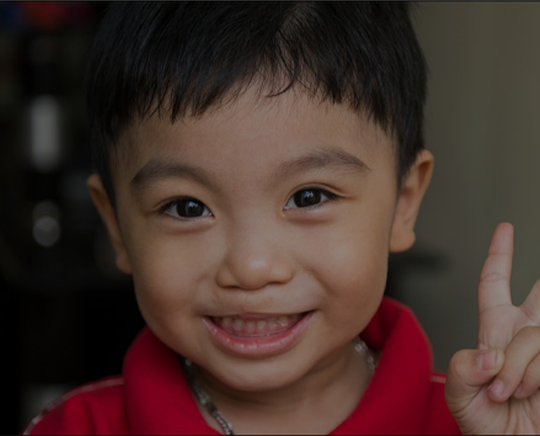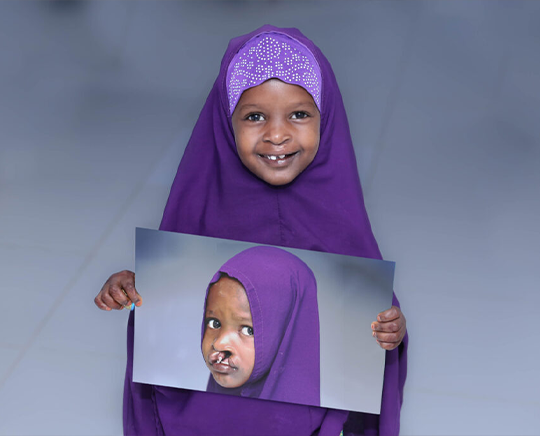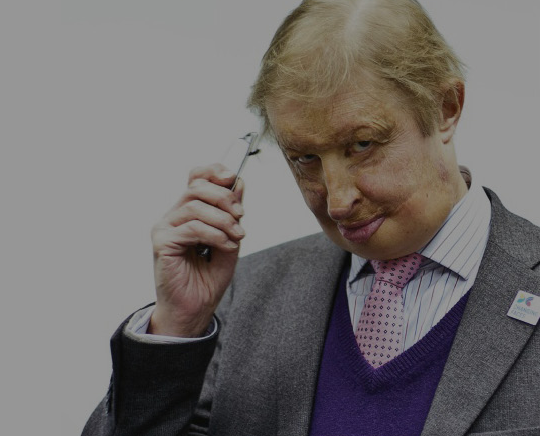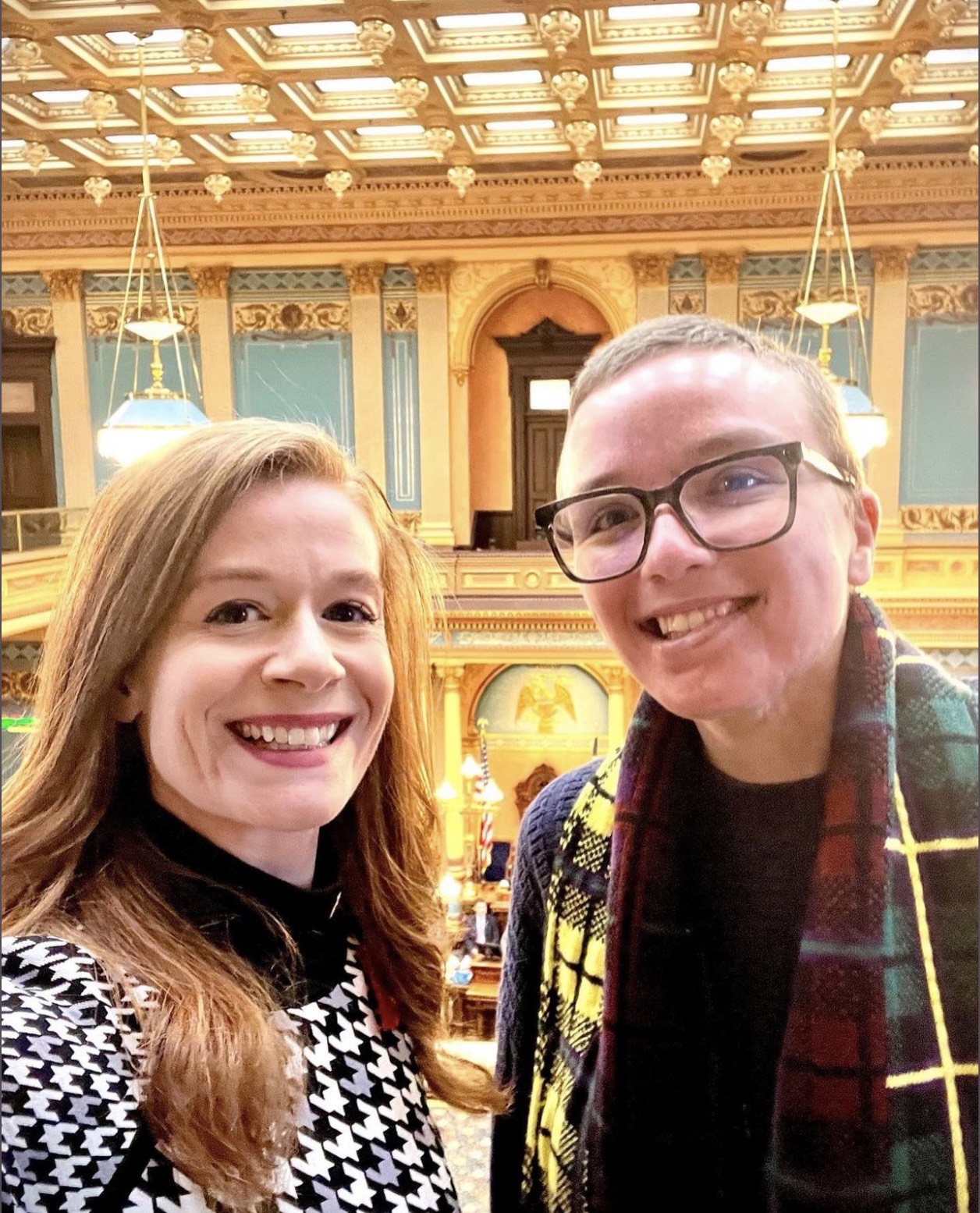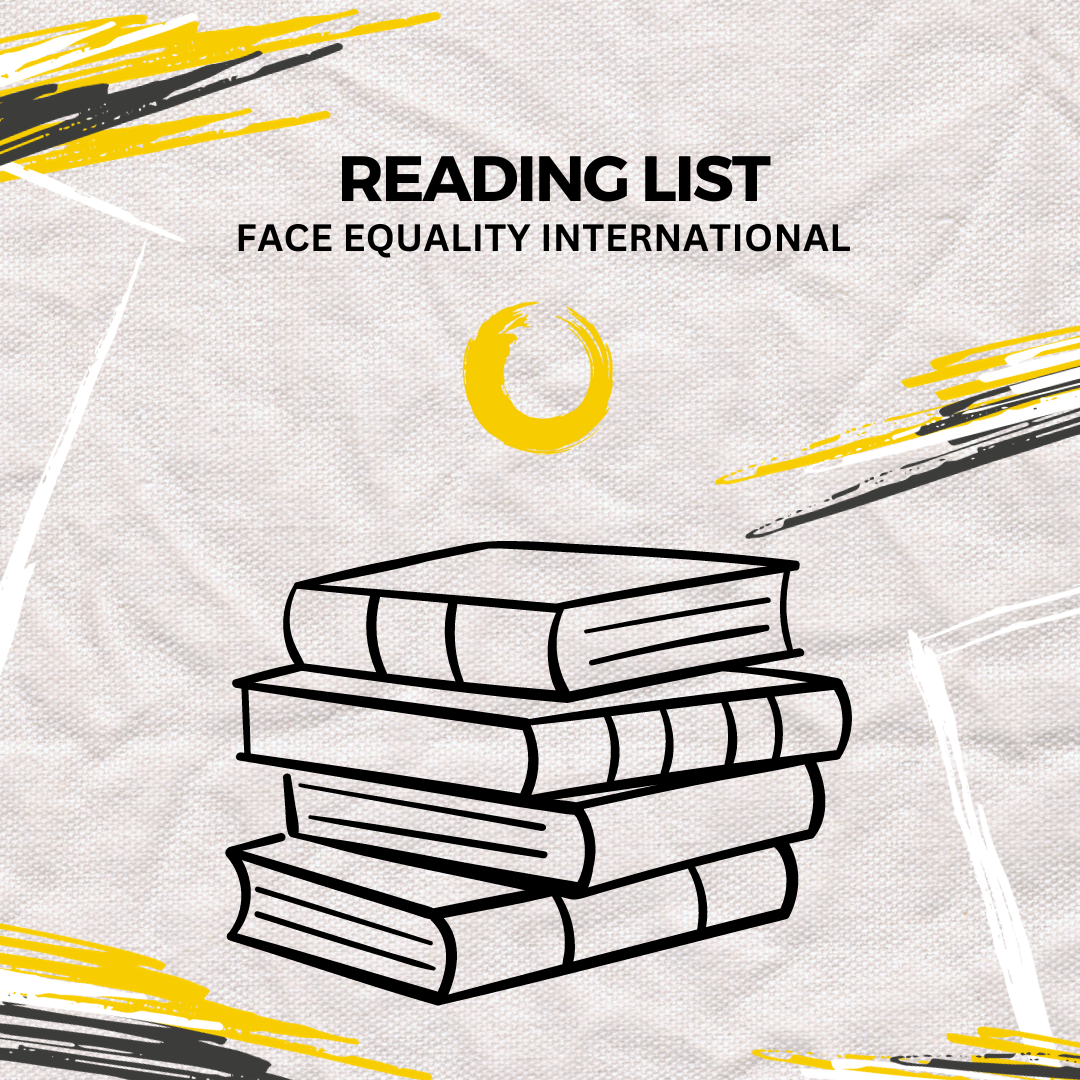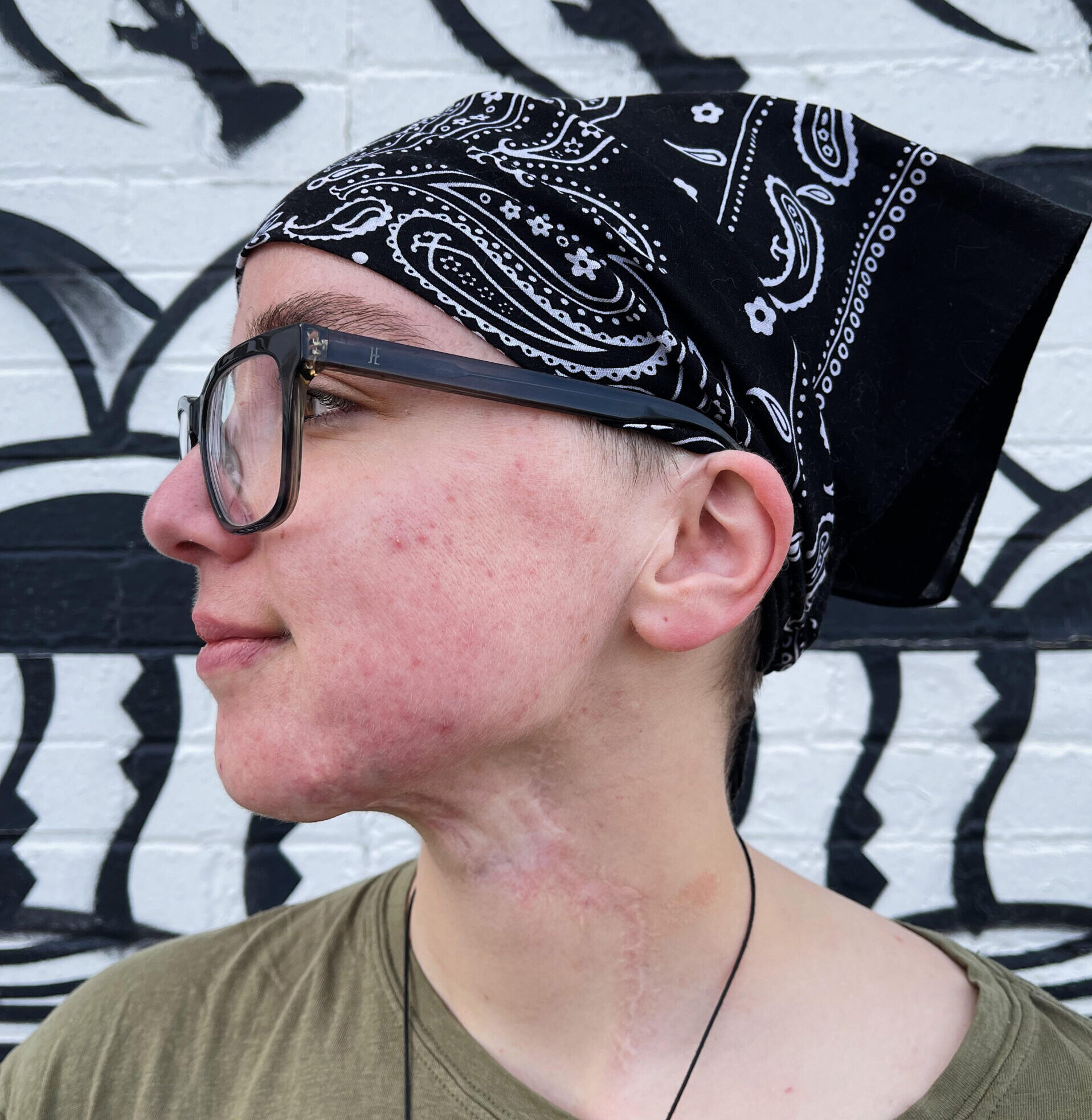Living with the Stigma of Facial Disfigurement in an LMIC
“The family found out that he had a lip and palate and they locked him up”
- Most people with disfigurements, along with their parents are resigned to consistent failure from systems surrounding them, be it government, media or healthcare. This includes governments failing to enforce or extend protection and support to people with disfigurements under the Convention on the Rights of Persons with Disabilities (CRPD), despite having ratified it.
- Myths, superstitions and harmful beliefs about the cause of disfigurement often create a culture of ‘victim-blaming’, reinforcing stigma that disproportionately impacts women and girls. Abandonment of mothers who give birth to children with disfigurements is a common product of this going unaddressed.
- Bullying, mistreatment and child abuse are common experiences. Be it abandonment at birth, being hidden away, bullied, abused or mistreated by teachers, families and peers.
- Charities and healthcare services devoted to the disfigurement community are stretched, and often do not have the capacity required to advocate for the rights and protections of their service users. They too are failed by governments and denied the accommodations and support offered to other disability groups.
Read the full reports below.
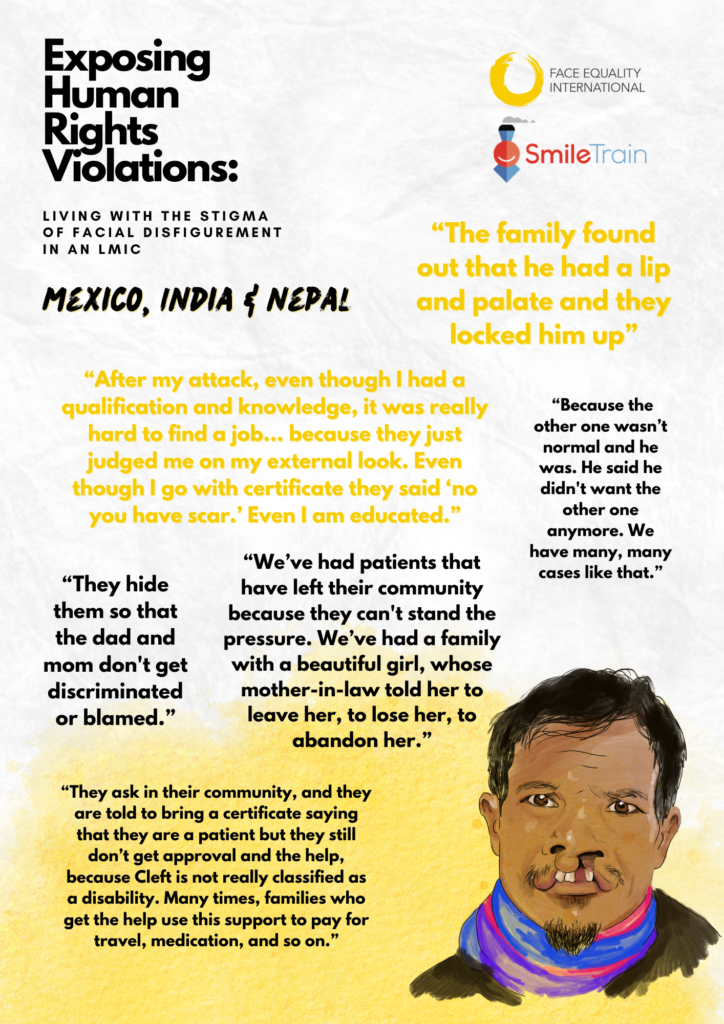
Conclusions and future action required
- Align with other equality and human rights movements to ensure efforts extend to disfigurement community, in particular disability and women’s movements, to prevent disproportionate impact on women in low-income environments. Similarly, humanitarian efforts to prevent children with disfigurements from being abandoned in orphanages is essential.
- Policymakers must ensure that disfigurement is included in disability rights and inclusion initiatives. United Nations CRPD ratified countries have a duty to serve the disfigurement community, and so the UN would benefit from increasing representation and seeking expert advice from the disfigurement community.
- Further research to evidence human rights violations, whilst measuring stigma to track social behavioural change on an individual and societal level is required in order to develop and monitor successful interventions to reduce disfigurement stigma and discrimination.
- Service providers working with the facial disfigurement community must proactively equip and educate themselves on counteracting stigma, or else be liable to perpetrate it.
Contact FEI on info@faceequalityinternational.org
Exposing Human Rights Violations: Living with the Stigma of Disfigurement in an LMIC



